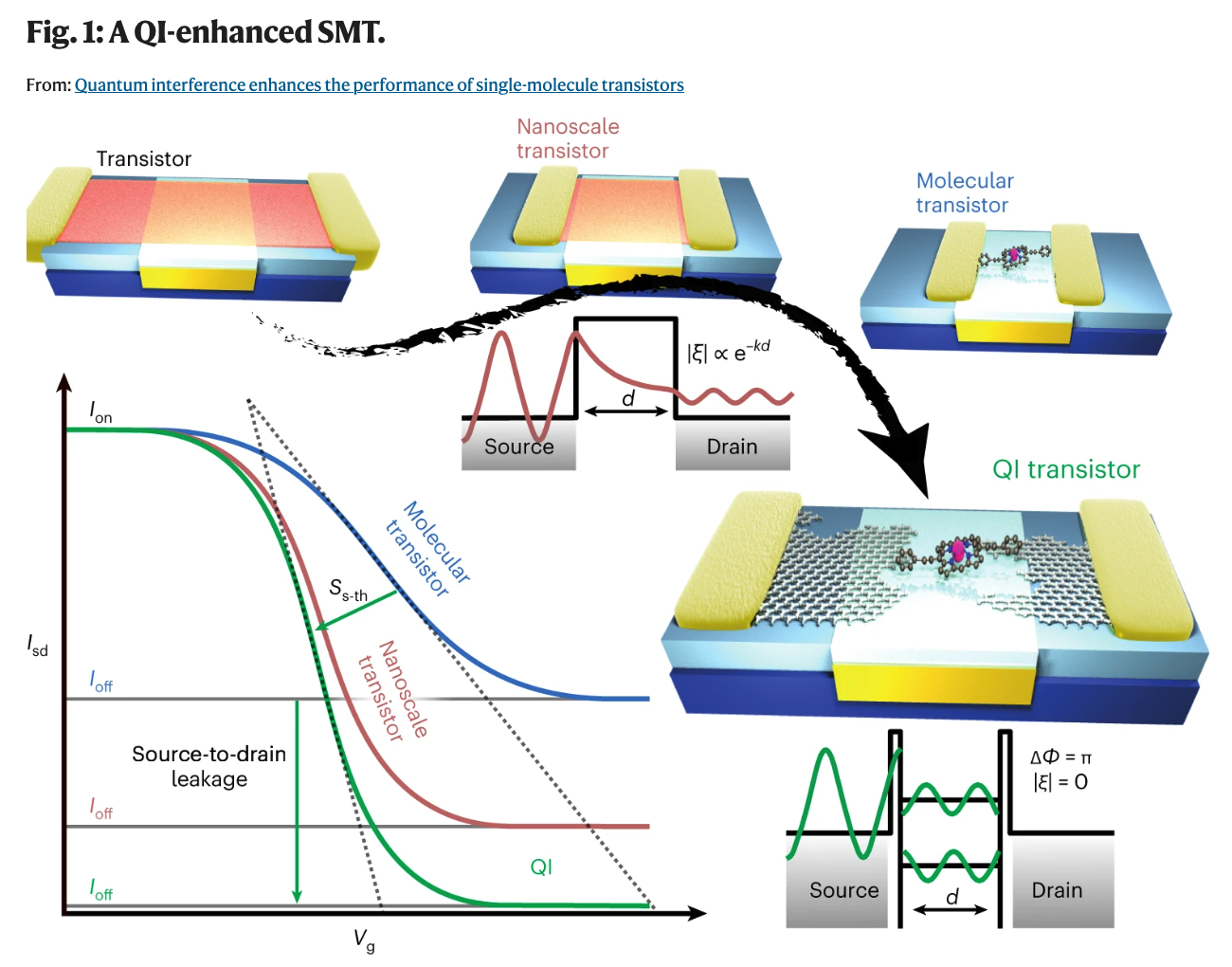Quantum interference enhances the performance of single-molecule transistor
An international team of researchers from Queen Mary University of London, the University of Oxford, Lancaster University, and the University of Waterloo have developed a new single-molecule transistor that uses quantum interference to control the flow of electrons.
The transistor, which is described in a paper published in Nature Nanotechnology,opens new possibilities for using quantum effects in electronic devices.
Transistors are the basic building blocks of modern electronics. They are used to amplify and switch electrical signals, and they are essential for everything from smartphones to spaceships. However, the traditional method of making transistors, which involves etching silicon into tiny channels, is reaching its limits.
As transistors get smaller, they become increasingly inefficient and susceptible to errors, as electrons can leak through the device even when it is supposed to be switched off, by a process known as quantum tunnelling. Researchers are exploring new types of switching mechanisms that can be used with different materials to remove this effect.
"Quantum interference is a powerful phenomenon that has the potential to be used in a wide variety of electronics applications," said lead author Dr James Thomas, Lecturer in Quantum Technologies at Queen Mary University of London. "We believe that our work is a significant step towards realizing this potential."
"Our results show that quantum interference can be used to control the flow of electrons in transistors, and that this can be done in a way that is both efficient and reliable," said co-author Professor Jan Mol, Professor of Physics at Queen Mary University of London. "This could lead to the development of new types of transistors that are smaller, faster, and more energy-efficient than current devices."
